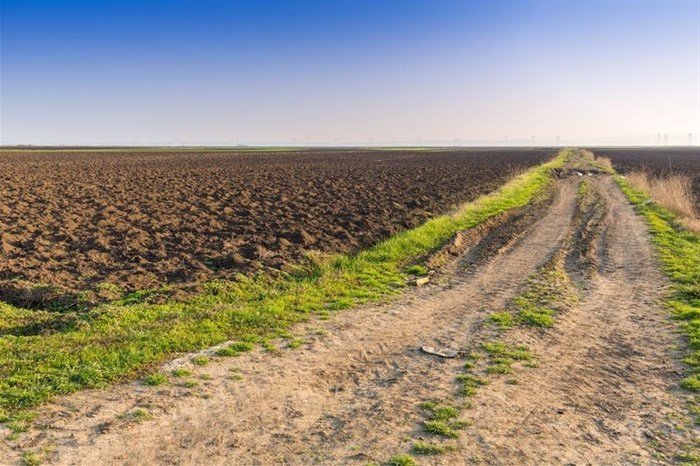
Top stories






More news

















Logistics & Transport
Uganda plans new rail link to Tanzania for mineral export boost









This surge in numbers will have significant ramifications for the continent’s food security, which is already under pressure mainly due to climate change. The good news is that Africa’s agriculture sector has been growing at a steady pace and the continent boasts at least 65% of the world’s uncultivated arable land. If this is fully utilised, then African farmers could meet the food needs of the entire world.
As things stand, however, the continent will continue to be dependent on the rest of the world for food, with imports amounting to $35bn annually entering the African market. This includes imports of staples such as wheat ($9.3bn), rice ($5.3bn) and maize ($4.1bn). The rate is projected to rocket up to $110bn by 2025. The current system is geared towards cheap imports of commodities such as sugar, rice and palm oil which are all also produced in Africa, making it very difficult for domestic farmers and food processors to compete.
The conundrum is clear: Africa must find a way of scaling agricultural output. In response to this challenge, the African Union adopted the Comprehensive Africa Agriculture Development Programme (CAADP) in Maputo, Mozambique in 2003. One of the key policies called for member states to increase public agricultural investment to 10% of national budgets per year and for a 6% increase in agricultural productivity per year.
Despite most member states signing up to the ambitious strategy, very few nations have met the minimum requirements of the programme. While the African Union attempts to accelerate CAADP, agribusinesses have to rely on the private sector to help meet its funding needs in some countries. However, investors tend to be reluctant to offer affordable finance to agribusinesses because they consider the sector to be too risky, according to Dagmawi Habte-Selassie, programme officer at the UN-backed financial institution the International Fund for Agricultural Development (IFAD).
"The challenges facing the agribusinesses in Africa is that there is a shortfall in access to finance because many financial institutions view the sector as too risky," says Habte-Selassie.
"Some of the main obstacles cited by these institutions include an absence of data such as information on land titling, weak infrastructure in some areas, insufficient regulations and a lack of collateral to access significant amounts of funds, to name a few. Investors would rather throw their backing to something which will guarantee returns such as real estate or ICT-related investments, but if you show them the model that is viable then they will definitely be willing to step in and seize the opportunity."
Only 3% of total bank lending in Africa is allocated to agribusiness, this despite the fact that it contributes 40% of sub-Saharan Africa’s GDP and employs 70% of the population. The available domestic funding is expensive, with agricultural lending interest rates reaching as high as 50% in some countries. De-risking agricultural investment is achievable through the right kind of collaborations between government, the private sector and agribusiness stakeholders.
Private investments in the agriculture sector are mainly targeted towards high-value crops and export products such as flowers. There is also an increase in countries such as China purchasing land in some African countries to secure their long-term food and biofuel supply. There are also a number of private agribusiness investment funds targeting African agriculture. These funds use various instruments such as quasi-debt investments and public-private partnerships (PPPs).
More investors are embracing the opportunities on offer in agribusiness, but the lack of consistent government policy and poor regulations in some countries continue to constrain investment, according to Hans Bogaard, director at the Dutch development bank FMO. "It helps if governments and policymakers don’t interfere in agriculture in a way that creates uncertainties and unpredictabilities in the market," says Bogaard. "The governments need to really understand that they have to facilitate a strong agricultural sector, which means investing in the rural infrastructure and creating predictable regulations."
Government intervention, however, is required to improve poor infrastructure in every stage of the supply chain. Improving rural roads or implementing cold storage facilities could boost the volume of quality products making their way into the market. More countries need to ramp up their implementation of CAADP and embrace pro-private sector policies such as offering tax incentives to new agribusinesses. While these measures will go some way to making agribusiness an attractive investment prospect, systemic issues, especially the fragmented nature of Africa’s agribusiness will continue to hamper the sector.
The majority of farmers in Africa work on plots of land which are at the most one hectare, which limits their ability to scale and achieve higher yields. Smallholder farmers also tend to use poor quality of seeds and their operations are significantly less efficient than commercial farmers because they do not use modern equipment such as tractors or irrigation. Many of these farmers are isolated from the market, which not only affects their earnings but also their creditworthiness.
Therefore, it is critical that they are given the right support that will allow them to enter into the supply chain, according to Bogaard. "There will always be a role for both commercially-driven and subsistence smallholder farmers because they represent 90% of agricultural output," he says. "It is vital that they get support such as good seeds and fertilisers, which will increase their capacity to produce for the market, and get contracts with processors or traders that are integrated into the agribusiness value chains."
Only after they have successfully linked into high-value markets will investors, such as local banks, be willing to provide finance and support for them to grow their business, he concludes.

The African Agri Council is a network of global executives, decision makers and key stakeholders in Africa’s agricultural industry. We connect executives with their peers, policy makers, investors and financiers and leading global service providers across Africa and around the world.
Go to: http://www.agricouncil.org/articles/